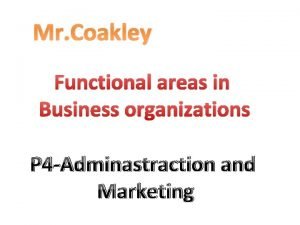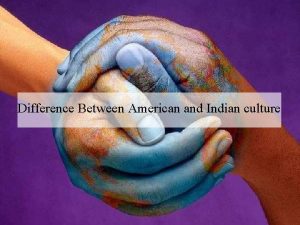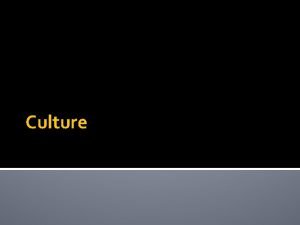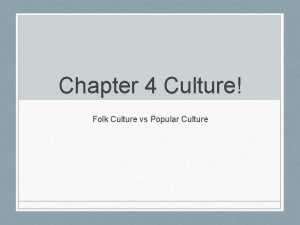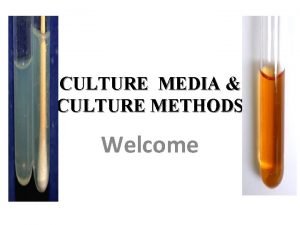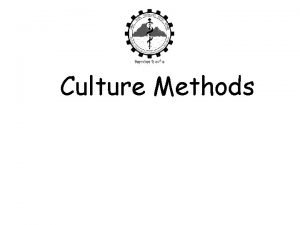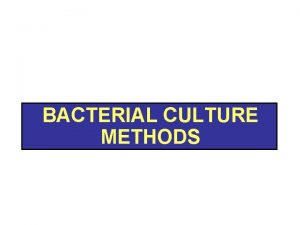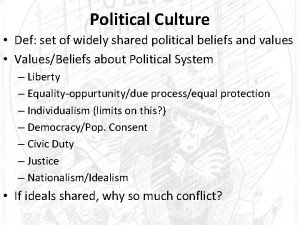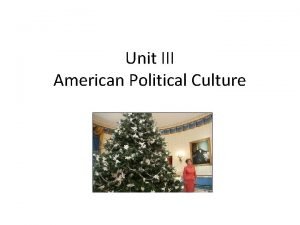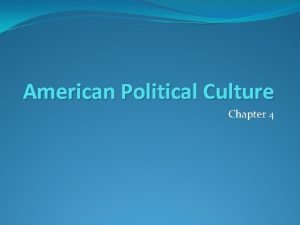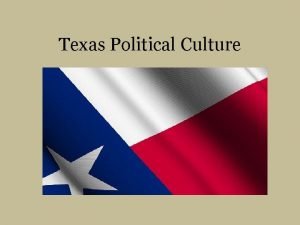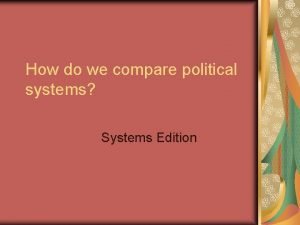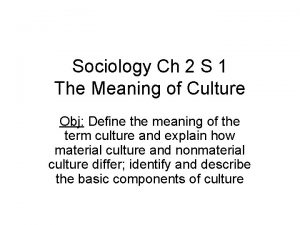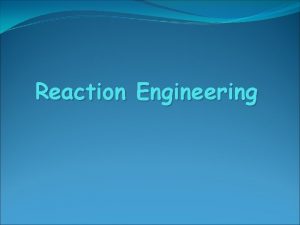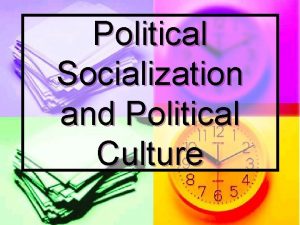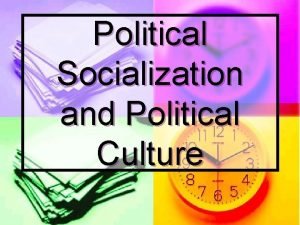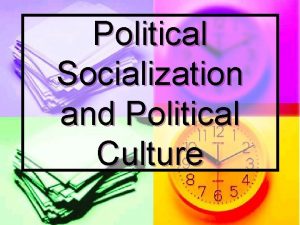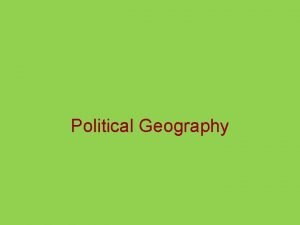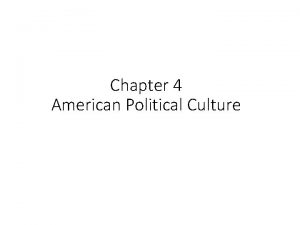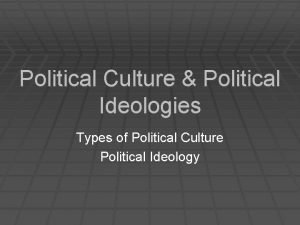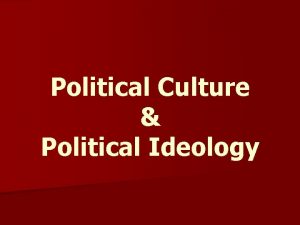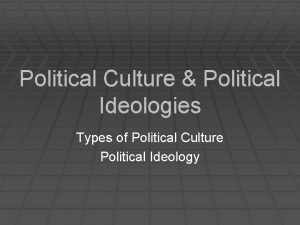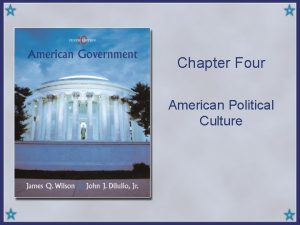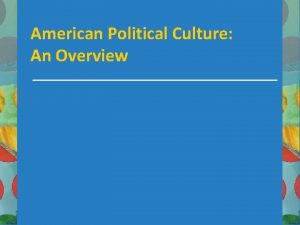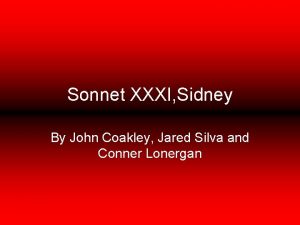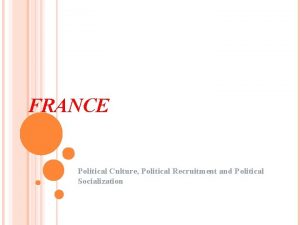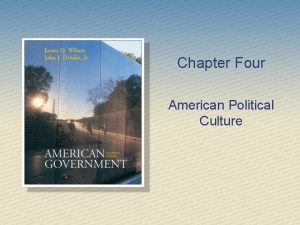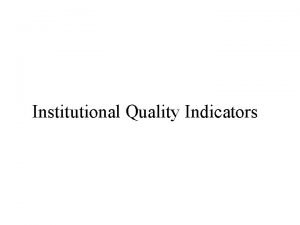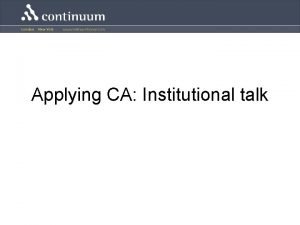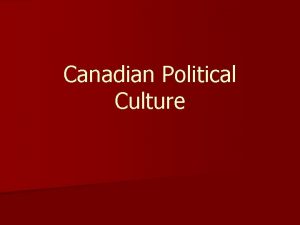POLITICAL CULTURE AND INSTITUTIONAL CHANGE John Coakley School





![POLITICAL REPRESENTATION ELECTORAL SYSTEM 12. 3. 3° [President] The voting shall be by secret POLITICAL REPRESENTATION ELECTORAL SYSTEM 12. 3. 3° [President] The voting shall be by secret](https://slidetodoc.com/presentation_image_h/297e84ea67e85011a88d2b1713262d73/image-6.jpg)
















- Slides: 22

POLITICAL CULTURE AND INSTITUTIONAL CHANGE John Coakley, School of Politics and International Relations, UCD POLITICAL CULTURE AND INSTITUTIONAL CHANGE

OUTLINE PRINCIPAL TOPICS • The dilemma: culture v. institutions • Political representation • Process of government POLITICAL CULTURE AND INSTITUTIONAL CHANGE

THE DILEMMA • Institutional reform can transform political realities overnight (e. g. change electoral system) • Political cultural values change much more slowly (e. g. public’s and politicians’ expectations regarding political norms) • Effectiveness of institutional change will depend on compatibility with political cultural values (legal/constitutional reform will not necessarily translate into substantive change; e. g. ministerial appointments) POLITICAL CULTURE AND INSTITUTIONAL CHANGE

THE DILEMMA A PARADOX OF IRISH POLITICAL CULTURE • Rejection of overt British influence (e. g. symbolised in Dáil itself; current Dáil is 28 th since foundation of state, not 30 th) • Acceptance of British models of government (e. g. parliamentary usage, expression “another place”) POLITICAL CULTURE AND INSTITUTIONAL CHANGE

POLITICAL REPRESENTATION ISSUES IN IRISH POLITICAL DEBATE CONDITIONED BY BRITISH MODEL? • Do we need a second chamber? (jury still out? ) • Is the Dáil too large? (UK ratio would imply Dáil of about 50; but “critical mass” and historical arguments) • Should the Dáil electoral system be changed? POLITICAL CULTURE AND INSTITUTIONAL CHANGE
![POLITICAL REPRESENTATION ELECTORAL SYSTEM 12 3 3 President The voting shall be by secret POLITICAL REPRESENTATION ELECTORAL SYSTEM 12. 3. 3° [President] The voting shall be by secret](https://slidetodoc.com/presentation_image_h/297e84ea67e85011a88d2b1713262d73/image-6.jpg)
POLITICAL REPRESENTATION ELECTORAL SYSTEM 12. 3. 3° [President] The voting shall be by secret ballot and on the system of proportional representation by means of the single transferable vote. 16. 2. 5° [Dáil] The members shall be elected on the system of proportional representation by means of the single transferable vote. 18. 5 [Seanad] Every election of the elected members of Seanad Éireann shall be held on the system of proportional representation by means of the single transferable vote, and by secret postal ballot. POLITICAL CULTURE AND INSTITUTIONAL CHANGE

POLITICAL REPRESENTATION ELECTORAL SYSTEM • Terminology implies “British” system of PR is seen as the “normal” one • Cultural understanding and language use allows non-proportional systems (e. g. alternative vote) to be described as “PR in single-member constituencies” • In reality, list system is “normal” • Electoral reform will not necessarily change cultural expectations (cf pre-1914 Ireland) POLITICAL CULTURE AND INSTITUTIONAL CHANGE

POLITICAL REPRESENTATION IMPLICATIONS OF PROPORTIONAL REPRESENTATION • Large constituencies (5+? ) • Fixed constituency boundaries (equity through reapportionment, not redistricting) • No by-elections POLITICAL CULTURE AND INSTITUTIONAL CHANGE

PROCESS OF GOVERNMENT OFFICE HOLDERS • Role of President • Choice of Taoiseach • Selection of ministers POLITICAL CULTURE AND INSTITUTIONAL CHANGE

PROCESS OF GOVERNMENT PRESIDENT OF IRELAND • Limited explicit powers; great authority 12. 1. There shall be a President of Ireland (Uachtarán na hÉireann), hereinafter called the President, who shall take precedence over all other persons in the State and who shall exercise and perform the powers and functions conferred on the President by this Constitution and by law. 12. 2. 1° The President shall be elected by direct vote of the people. • Political cultural expectations imply minimalist role (1982 v. 1994) POLITICAL CULTURE AND INSTITUTIONAL CHANGE

PROCESS OF GOVERNMENT A SPACE FOR THE KING OF IRELAND 29. 4. 2° For the purpose of the exercise of any executive function of the State in or in connection with its external relations, the Government may to such extent and subject to such conditions, if any, as may be determined by law, avail of or adopt any organ, instrument, or method of procedure used or adopted for the like purpose by the members of any group or league of nations with which the State is or becomes associated for the purpose of international co-operation in matters of common concern. POLITICAL CULTURE AND INSTITUTIONAL CHANGE

PROCESS OF GOVERNMENT THE TAOISEACH • Constitution unusually explicit: 13. 1. 1° The President shall, on the nomination of Dáil Éireann, appoint the Taoiseach, that is, the head of the Government or Prime Minister. • Apparent differences from British model, but office based on that of British prime minister POLITICAL CULTURE AND INSTITUTIONAL CHANGE

PROCESS OF GOVERNMENT MINISTERS • Constitution sets boundaries: 28. 1. The Government shall consist of not less than seven and not more than fifteen members who shall be appointed by the President in accordance with the provisions of this Constitution. 28. 7. 1° The Taoiseach, the Tánaiste and the member of the Government who is in charge of the Department of Finance must be members of Dáil Éireann. 28. 7. 2° The other members of the Government must be members of Dáil Éireann or Seanad Éireann, but not more than two may be members of Seanad Éireann. • Boundaries narrowly interpreted (maximise number of TD ministers; minimise Dáil support) POLITICAL CULTURE AND INSTITUTIONAL CHANGE

PROCESS OF GOVERNMENT GOVT RELATIONS WITH PARLIAMENTARY SYSTEM 1. Government is answerable to parliament, and: (a)Ministers must be MPs (b)Ministers may (but need not) be MPs (c)Ministers may not be MPs PRESIDENTIAL SYSTEM 2. Government is not answerable to parliament (and ministers are not MPs) POLITICAL CULTURE AND INSTITUTIONAL CHANGE

PROCESS OF GOVERNMENT 1(a) PARLIAMENT CONTROLS GOVERNMENT: MINISTERS ARE PARLIAMENTARIANS PARLIAMENT Examples: Ireland, United Kingdom GOVT. POLITICAL CULTURE AND INSTITUTIONAL CHANGE

PROCESS OF GOVERNMENT 1(b) PARLIAMENT CONTROLS GOVERNMENT: MINISTERS MAY BE PARLIAMENTARIANS Examples: Germany, Italy PARLIAMENT GOVT. POLITICAL CULTURE AND INSTITUTIONAL CHANGE

PROCESS OF GOVERNMENT 1(c) PARLIAMENT CONTROLS GOVERNMENT: MINISTERS MAY NOT BE PARLIAMENTARIANS Examples: France, Norway Netherlands PARLIAMENT GOVT. POLITICAL CULTURE AND INSTITUTIONAL CHANGE

PROCESS OF GOVERNMENT 2. PARLIAMENT DOES NOT CONTROL GOVERNMENT: MINISTERS MAY NOT BE PARLIAMENTARIANS Examples: USA, other western hemisphere PARLIAMENT GOVT. POLITICAL CULTURE AND INSTITUTIONAL CHANGE

PROCESS OF GOVERNMENT RECENT GOVERNMENTS: DÁIL SUPPORT overall majority (83 seats) POLITICAL CULTURE AND INSTITUTIONAL CHANGE

CONCLUSION Political cultural values predispose us towards particular expectations: 1. We need a second chamber (Seanad) 2. Dáil size should be relatively large 3. We need small Dáil constituencies 4. Constituency boundaries should be revised frequently POLITICAL CULTURE AND INSTITUTIONAL CHANGE

CONCLUSION Political cultural values predispose us towards particular expectations: 5. Casual Dáil vacancies must be filled by by-election 6. The President should not play a political role 7. Ministers should all be parliamentarians 8. Governments should be “minimum winning coalitions” POLITICAL CULTURE AND INSTITUTIONAL CHANGE

THE END … POLITICAL CULTURE AND INSTITUTIONAL CHANGE
 Sue coakley
Sue coakley Christopher coakley
Christopher coakley Functional areas in business organisations
Functional areas in business organisations Pop culture examples
Pop culture examples Batch culture vs continuous culture
Batch culture vs continuous culture Indian culture vs american culture
Indian culture vs american culture Uses of selenite f broth
Uses of selenite f broth Folk culture and popular culture venn diagram
Folk culture and popular culture venn diagram Folk cultures are spread primarily by
Folk cultures are spread primarily by Composite media in microbiology
Composite media in microbiology Folk culture and popular culture venn diagram
Folk culture and popular culture venn diagram Carpet culture method
Carpet culture method Lawn culture method
Lawn culture method Surface culture deep culture and esol
Surface culture deep culture and esol Political spectrum def
Political spectrum def American political culture definition
American political culture definition American political culture definition
American political culture definition Is texas in the bible belt
Is texas in the bible belt What is political culture
What is political culture John kotter corporate culture and performance
John kotter corporate culture and performance Sociologists define a symbol as
Sociologists define a symbol as Batch culture vs continuous culture
Batch culture vs continuous culture Individualistic culture definition
Individualistic culture definition


